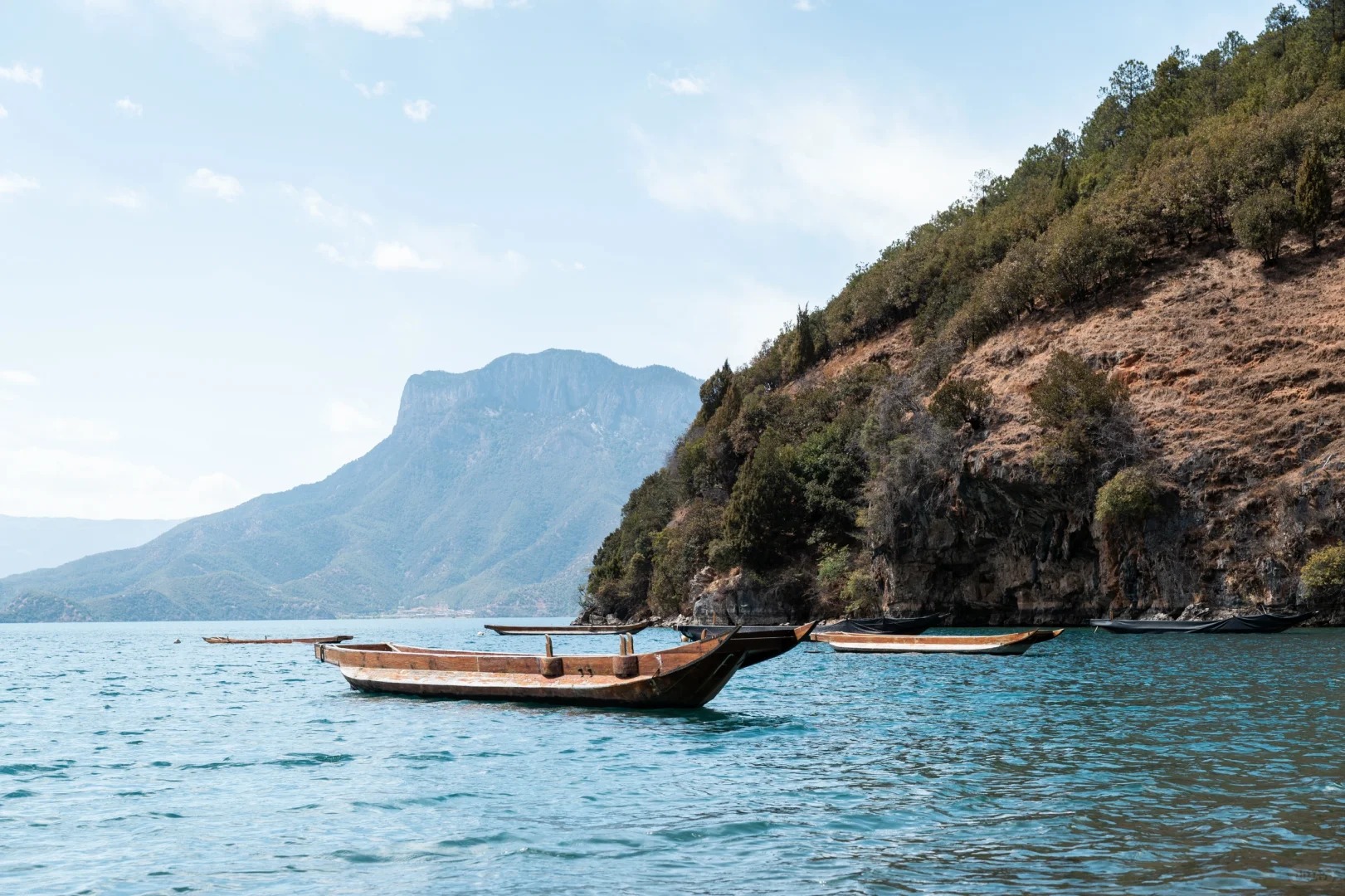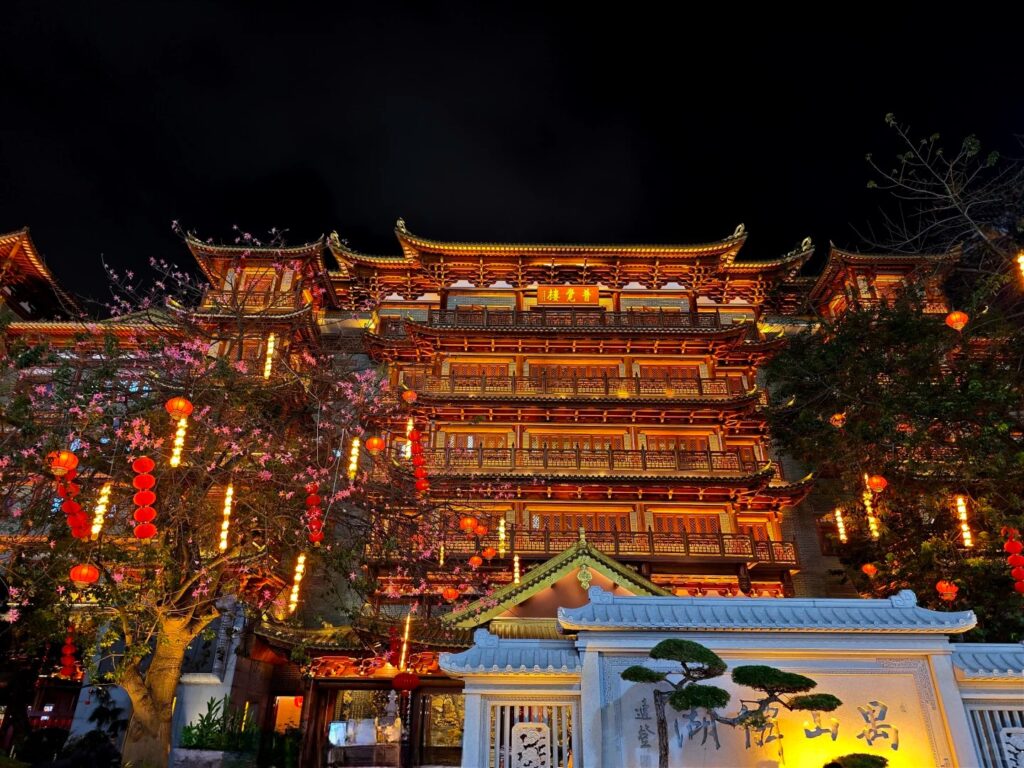Visiting Information
| Information | Details |
|---|---|
| Chinese Name | 泸沽湖 (Lúgū Hú) |
| Location and Address | Borders of Yunnan and Sichuan Provinces, China |
| Opening Hours | Open 24 hours (scenic area) |
| Entrance Fee | 100 CNY (valid for 7 days) |
| How to Get There | By Bus: From Lijiang or Xichang to Luoshui Village By Car: Approximately 5 hours drive from Lijiang No metro or local taxi service available |
| Best Time for Visit | April to October |
| Contact Info | Tel: +86 888 5123456 Email: [email protected] |
Overview
Lugu Lake, known as the “Kingdom of Women,” is a stunning alpine lake straddling the border between Yunnan and Sichuan provinces in southwestern China. Renowned for its pristine beauty and the unique matriarchal Mosuo culture that surrounds it, Lugu Lake offers visitors a blend of natural wonders and cultural experiences unlike anywhere else in China.
Historical Background
Lugu Lake has been home to the Mosuo people for centuries. This ethnic minority group is famous for their matriarchal society and unique “walking marriage” custom. The lake itself is believed to have formed about 50,000 years ago due to geological movements. Throughout history, the remote location of Lugu Lake has helped preserve both its natural environment and the distinct culture of its inhabitants, making it a living museum of both ecological and anthropological significance.
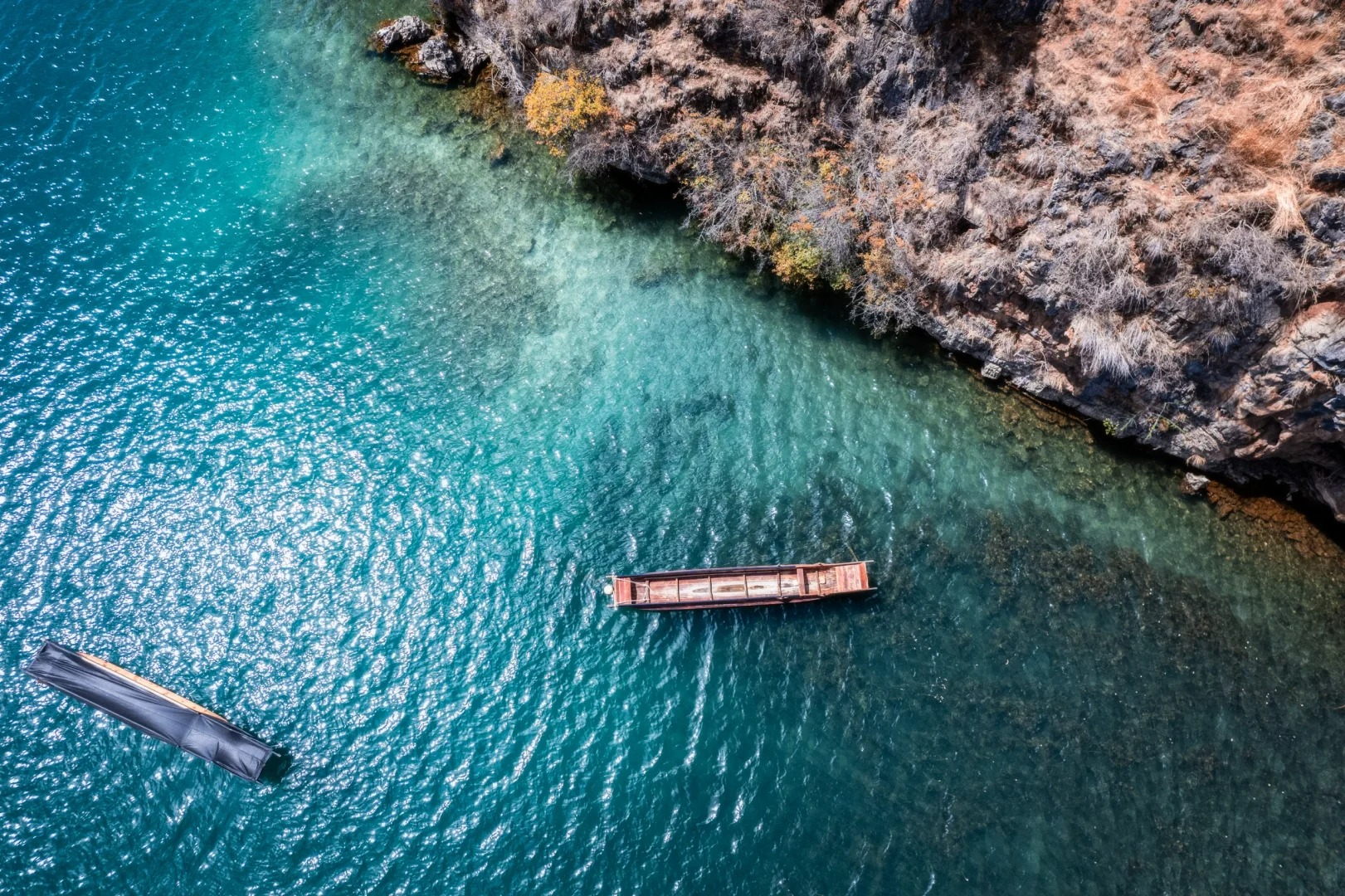
Architectural Features
- Traditional Mosuo Houses: These wooden structures typically feature three stories, with the ground floor used for livestock, the second floor for living quarters, and the top floor for storage and honoring ancestors. The matriarch’s room is usually the largest and centrally located.
- Zhamei Lamasery: Located on the Zhamei Island, this Tibetan Buddhist monastery showcases traditional Tibetan architectural styles with its white walls, golden roof, and intricate decorations. It offers a striking contrast to the blue waters of the lake.
- Mosuo Cultural Museum: While not an ancient structure, this modern building houses exhibits on Mosuo culture and history. Its design incorporates elements of traditional Mosuo architecture, serving as a bridge between past and present.
- Gemu Mountain Temple: Perched on the sacred Gemu Mountain, this temple complex blends into the natural landscape, offering panoramic views of the lake. Its architecture reflects a mix of Tibetan and local influences.
Cultural Importance
Lugu Lake holds immense cultural importance as the home of the Mosuo people, one of the world’s last matriarchal societies. The unique “walking marriage” system, where romantic partners do not live together, and children are raised in the mother’s household, has fascinated anthropologists and visitors alike. The lake area serves as a living repository of Mosuo traditions, including their animistic religion, colorful costumes, and distinctive music and dance. Moreover, the harmonious relationship between the Mosuo people and their environment offers valuable insights into sustainable living and eco-cultural preservation.
Surrounding Attractions
- Gemu Mountain: Considered sacred by the Mosuo people, this mountain offers hiking trails with breathtaking views of Lugu Lake and surrounding landscapes. The mountain is steeped in local legends and is an important pilgrimage site.
- Zhamei Island: This is the largest island on Lugu Lake, home to the Zhamei Lamasery. Visitors can take a boat ride to the island, explore the monastery, and enjoy panoramic views of the lake.
- Lige Peninsula: Known for its picturesque views, especially during sunset, Lige Peninsula is a popular spot for photography and relaxation. It’s home to a traditional Mosuo village where visitors can experience local culture firsthand.
- Luoshui Village: As the main tourist center on the lake, Luoshui offers a range of accommodations and is a great place to experience Mosuo culture. It’s known for its vibrant night market and cultural performances.
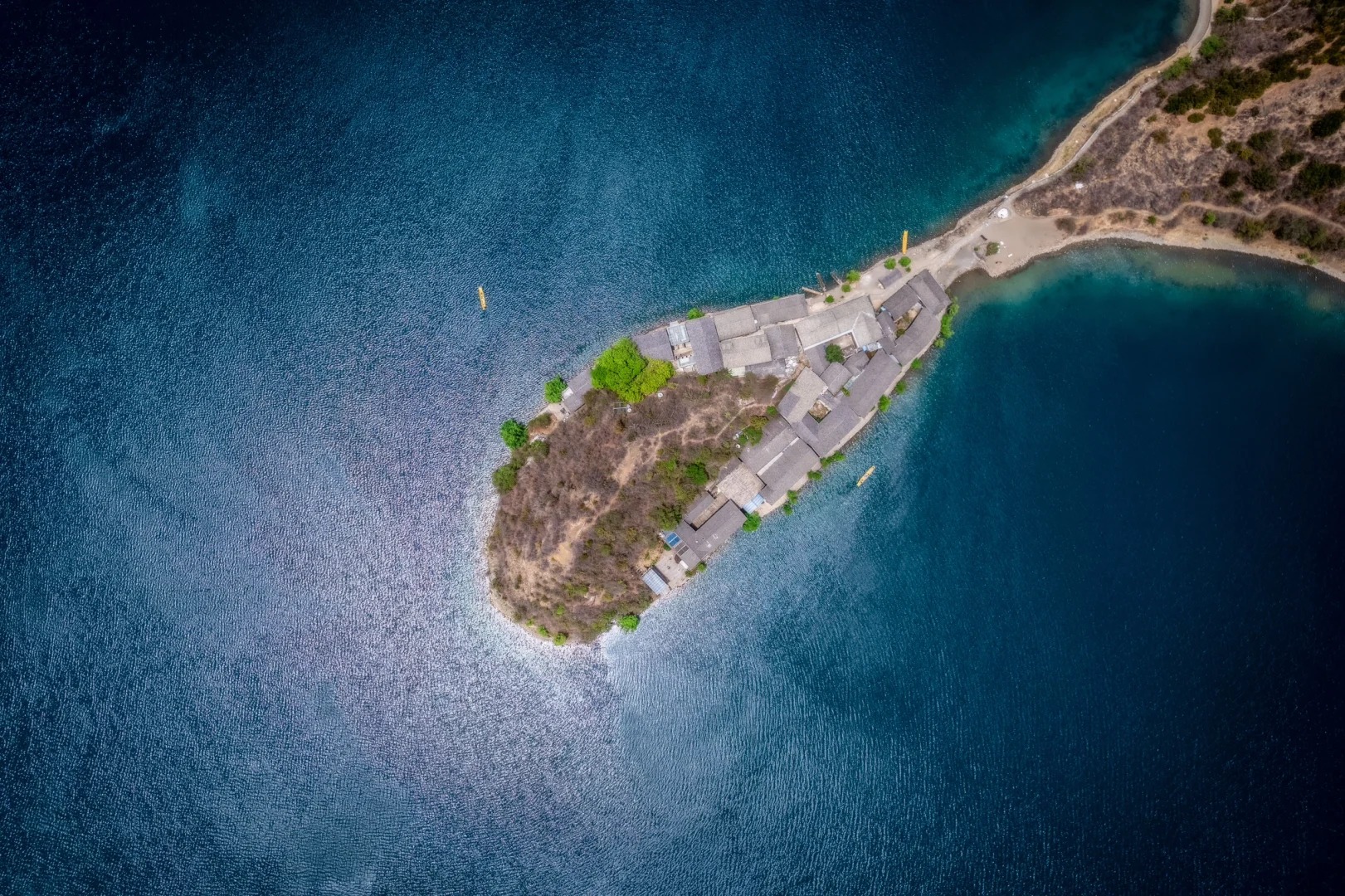
Photography Opportunities
- Lake Reflections: The calm waters of Lugu Lake often create perfect mirror-like reflections of the surrounding mountains and sky, especially during sunrise and sunset. These moments offer stunning photography opportunities from various points around the lake shore.
- Traditional Mosuo Boats: The unique wooden boats used by the Mosuo people, often piloted by women in traditional dress, provide picturesque subjects against the backdrop of the lake and mountains.
- Cultural Portraits: With permission, photographing Mosuo people in their colorful traditional attire offers a chance to capture the unique culture of the region. This is particularly striking during festivals or cultural performances.
- Aerial Views: From vantage points like Gemu Mountain, photographers can capture sweeping panoramas of Lugu Lake and its islands, showcasing the vast beauty of the landscape.
Modern Importance
- Cultural Preservation: Lugu Lake serves as a living museum of Mosuo culture, playing a crucial role in preserving and showcasing this unique matriarchal society. It offers researchers and visitors alike a rare glimpse into an alternative social structure.
- Ecological Conservation: The lake and its surroundings are part of important conservation efforts, helping to protect the diverse ecosystems of the region. It serves as a model for balancing tourism development with environmental protection.
- Sustainable Tourism: Lugu Lake has become a prime example of eco-tourism in China, demonstrating how local communities can benefit from tourism while maintaining their traditional way of life and protecting their environment.
- Gender Studies: The matriarchal Mosuo society around Lugu Lake provides valuable insights for gender studies, offering a real-world example of a society with different gender norms and power structures compared to patriarchal societies.
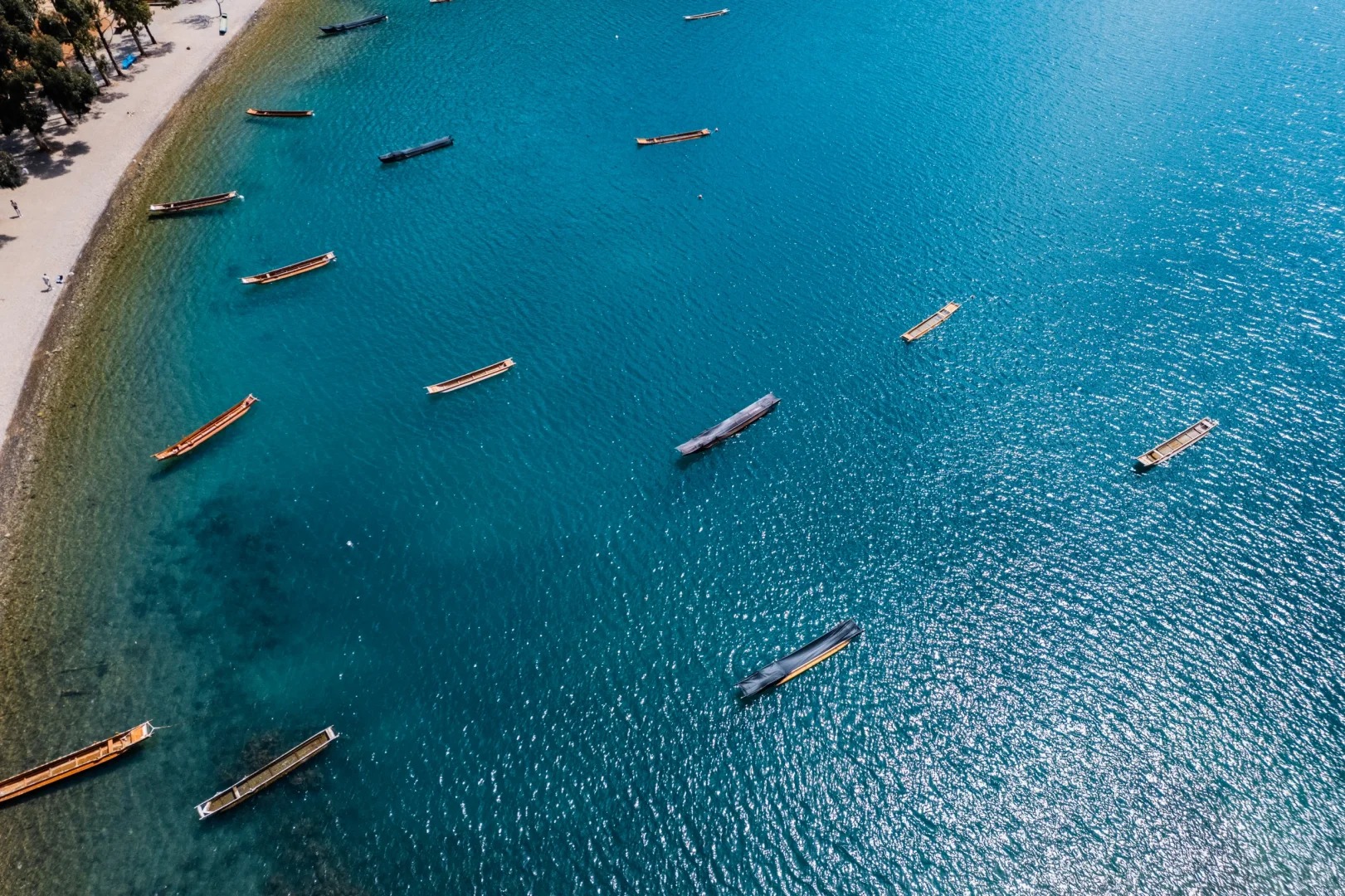
FAQ
- What is Lugu Lake famous for?
Lugu Lake is famous for its stunning natural beauty, being home to the matriarchal Mosuo culture, and for its nickname “The Kingdom of Women.” - What’s inside Lugu Lake?
Lugu Lake contains several islands, including Zhamei Island with its Lamasery, traditional Mosuo villages along its shores, and diverse aquatic life. - Is Lugu Lake free?
No, Lugu Lake is not free. There is an entrance fee of 100 CNY, which is valid for 7 days. - Is Lugu Lake worth visiting?
Yes, Lugu Lake is worth visiting for its unique blend of natural beauty and cultural experiences, offering insights into the Mosuo culture and stunning landscapes. - What to do in Lugu Lake?
At Lugu Lake, you can take boat rides, visit Mosuo villages, hike Gemu Mountain, explore Zhamei Island, enjoy local cuisine, and participate in cultural experiences. - How do I get to Lugu Lake in the local city?
From Lijiang, the nearest major city, you can take a long-distance bus (about 9 hours) or hire a car (about 5 hours drive) to reach Lugu Lake. - How to visit Lugu Lake?
To visit Lugu Lake, plan a stay of at least 2-3 days. Book accommodation in advance, especially during peak season. Respect local customs, dress modestly, and always ask for permission before photographing local people. Consider hiring a local guide for a more in-depth cultural experience.


